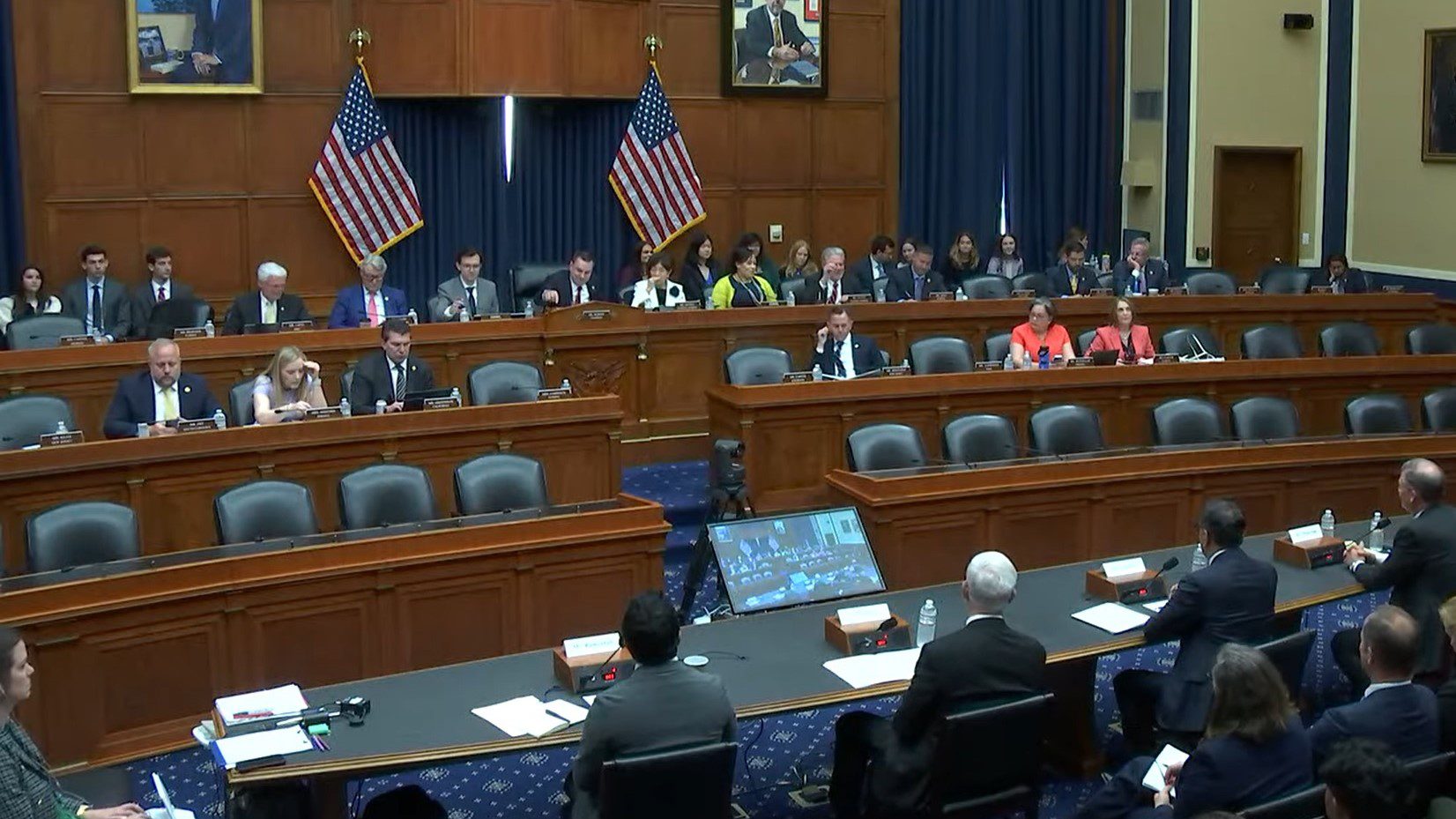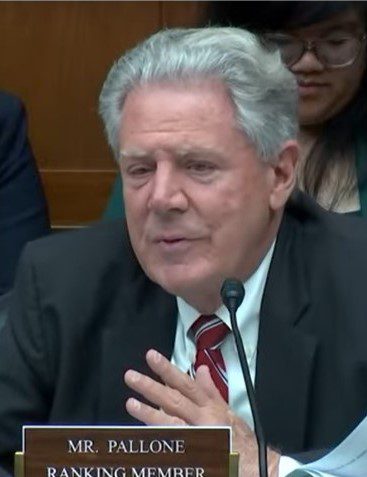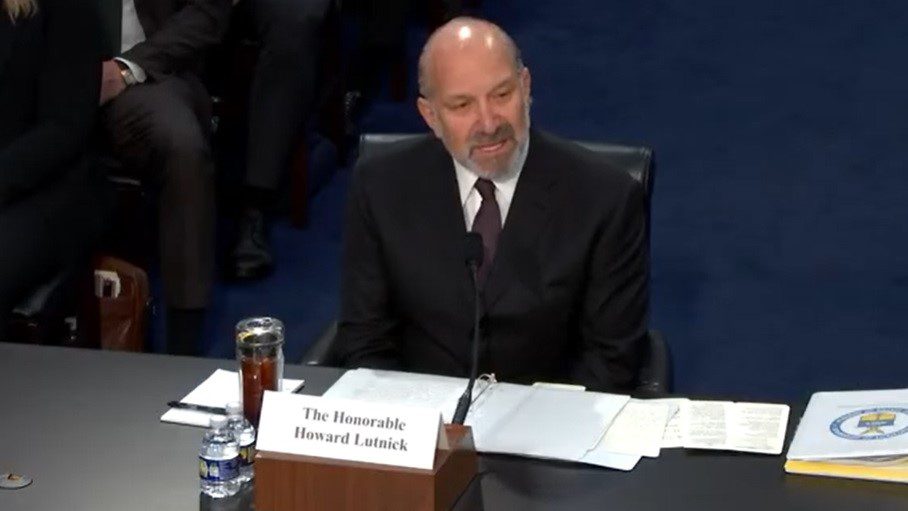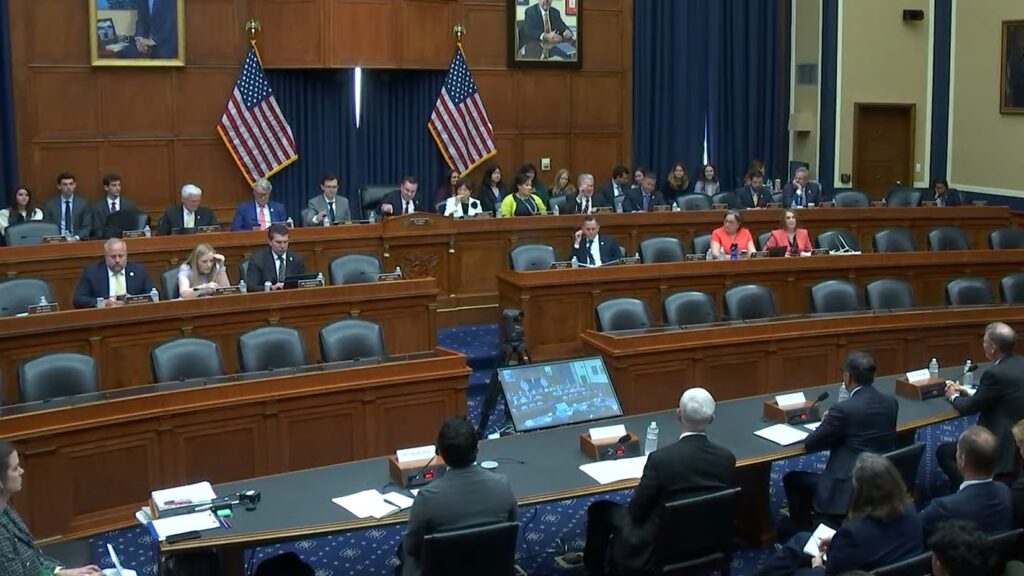House Debate on AI Regulation Moratorium Splits on Party Lines
Randy Sukow
|

A recent addition to the draft budget reconciliation bill (One Big Beautiful Bill) dominated a hearing yesterday of the House Subcommittee on Communications and Technology. In late May, House Republicans passed a 10-year moratorium on state and local regulation of artificial intelligence (AI). The moratorium would include a ban on enforcement of regulations some states have already adopted.
Subcommittee Democrats attacked the moratorium as a “giveaway” to high-tech companies, while Republicans said the moratorium is necessary to promote AI investment and to maintain technology development to keep pace with China.

“This provision would block enforcement of laws on the books right now that are protecting consumers from real-world harms,” said Representative Frank Pallone (D-NJ) ranking member of the Energy and Commerce Committee, who cited existing laws against AI-generated “deep fakes” during elections and protections for AI use in healthcare, education and other industries.
“Republicans want to ban the enforcement of all these state laws with absolutely no national law ready to go to address these concerns. Instead of enriching big tech, we should be working toward strong federal legislation,” he said.
Chip Pickering, CEO of industry association INCOMPAS and a former Communications Subcommittee Republican from Mississippi, defended the moratorium. He argued that Congress needs time to develop the national regulatory framework for AI infrastructure before states and localities limit AI functions. “The moratorium is simply means that we don’t have a thousand state actions that could delay the investments we need on both sides of the data centers and the full stack of the AI ecosystem,” Pickering said in subcommittee testimony.

Pickering and other witnesses identified the need to compete with China as the primary motivation for rapid AI development. Ronnie Vasishta, senior VP, Telecom for AI chip company NVIDIA, discussed his company’s work to develop 6G wireless technology in conjunction with “AI native.” The goal is to build AI capability into both wireline and wireless infrastructure. It would create end-to-end, rapid decision making in the communications chain for extremely intelligent automation. Vasista said that only NVIDIA and China’s Huawei are developing these systems.
“Whoever seizes the advantage in the development and deployment of AI-native wireless network infrastructure will win the 6G race,” Vasista said in written testimony.
Asad Ramzanali, director of AI and Technology Policy for Vanderbilt University, agreed that America must win the AI race with China, but emphasized different policies, such as increasing government spending on R&D and support of start-up technology companies over vertically integrated big tech firms, such as Amazon, Microsoft and Google.
Ramzanali also said that the inability of all Americans to use AI through broadband internet will limit AI’s overall benefit. He called for speeding up funding through the Broadband Equity, Access, and Deployment (BEAD) program.

Subcommittee Member Erin Houchin (R-IN) said, “Success still depends on the basics: Fast, reliable, broadband infrastructure, access to spectrum, cybersecurity, and reliable energy. For rural communities like mine in southern Indiana and across the country, those fundamentals are not always guaranteed.”
Houchin said Congress should concentrate on three priorities – permitting reform to speed infrastructure deployment, using AI to improve cybersecurity, and the development of reliable power sources, including small nuclear reactors.
In response, Pickering said he favors “BEAD flexibility,” which includes technology-neutral policies and removing any barriers in the program to funding for AI infrastructure, such as fiber to feed data centers. “Is there a role for AI itself in helping to accelerate permitting?,” he asked. “The thing about AI, it is going to be the greatest technological advancement in human productivity in the history of the world.”


